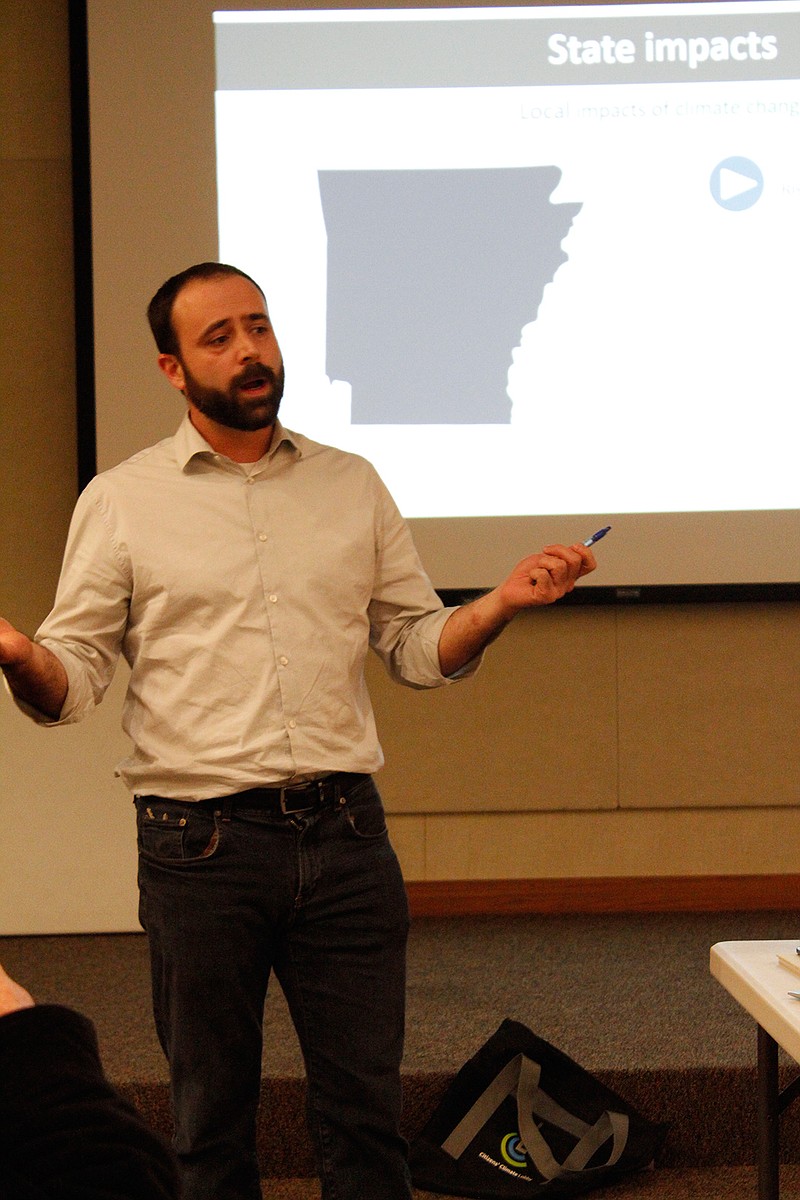The Arkansas coordinator for an international climate change lobby organization told members of Friends United for a Safe Environment on Monday how the public can be actively involved in creating worldwide environmental policy change.
Chris McNamara with Citizens' Climate Lobby said they work with politicians to show them their ideas on how to reduce carbon emissions and transform the United States into an economy that doesn't depend on fossil fuels.
"What we want to do is put a price on carbon-dioxide emissions," McNamara said. "We would place a fee on fossil fuels at the point of entry into the U.S. economy. That fee would start at $15 per ton and steadily rise $10 per ton every year, creating what's called the market signal. We want business and industry to know that fossil-fueled production that releases carbon dioxide emissions has a cost with it that is steadily rising year after year."
Cost of production will increase, and it will force businesses to change their production methods, he said.
"What this does is it incentivizes business and industry to invest in non-carbon intensive productions," McNamara said.
Then, all the funds from the carbon dividend fund would then be returned to households and citizens quarterly or monthly.
He said they designed the policy that way for several reasons.
"We don't want you as a consumer to carry the financial burden for the transmission to a clean energy economy," he said. "So prices of energy, prices of commodities are going to go up, right? You as the consumer are not releasing the carbon emissions. You should not carry the burden. We protect you from bearing that financial burden."
People will then spend the money in their local economies, thereby stimulating economic growth, he said.
"We're able to start reducing carbon emissions and address climate change," McNamara said. "We're able to protect your pocketbooks during that transmission so you don't bear the financial burden and we're able to stimulate the economy. So we have a way of addressing environmental issues and increasing financial growth at the same time."
A CCL regional conference is scheduled for Feb. 16-18 in Fort Smith, Ark., at the St. Scholastica Church. Panels will be held on natural gas and farming, among others. The organization is also recruiting new members to work in their communities to bring awareness of their work to address climate change. For more information, go to citizensclimatelobby.org.

